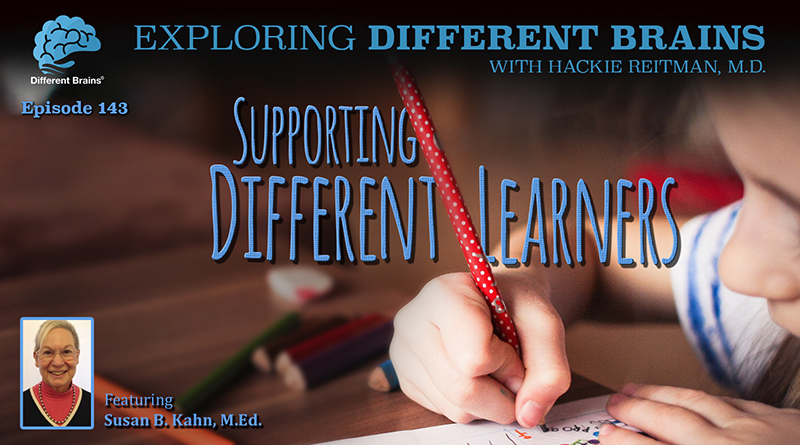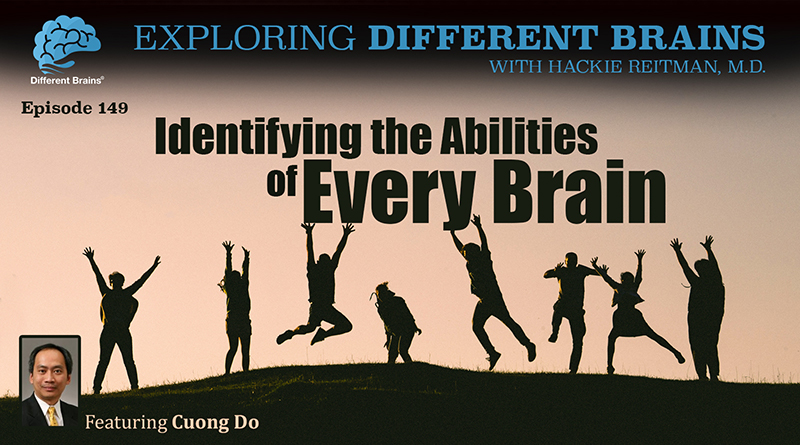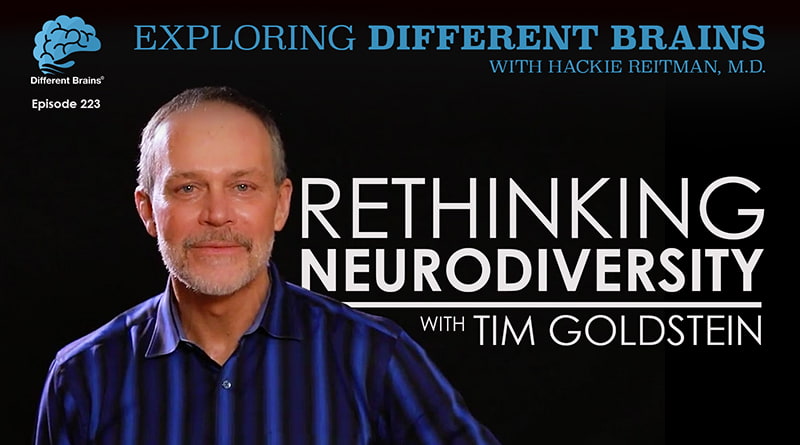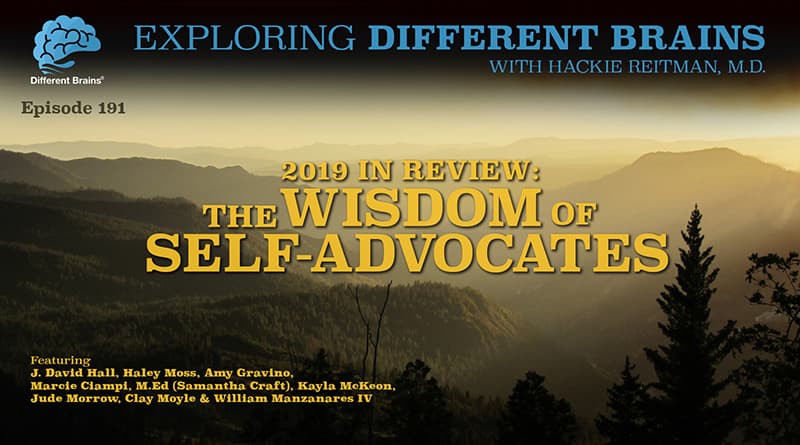
Supporting Different Learners, with Susan B. Kahn, M.Ed. | EDB 143
In this episode, Dr. Hackie Reitman speaks with educator and author Susan B. Kahn, M.Ed.
Inspired by her experience as a parent and by her fascination with language, Ms. Kahn spent over forty years changing and improving lives. She taught for twenty-five years in Arlington, MA as a special needs, public school educator. She has also written a number of books dedicated to teaching learners of all types how to read. Ms. Kahn discusses the need for teaching students as individuals, the importance of support for dyslexia, and why she feels the first 9 years of a child’s life are the most crucial for learning. (21 min)
For more about Susan B. Kahn, M.Ed., her books, and the free resources she offers, visit her website: https://suekahnreadnow.com/
.
To listen or download the podcast version of this episode, see the embedded player below.
Or look for us on your favorite podcast provider:
Apple Podcasts | Stitcher | SoundCloud
[expand title=”View Full Transcript”]
HACKIE REITMAN, M.D. (HR): Hi I’m Dr. Hackie Reitman welcome to another episode of exploring different brains. Today was so fortunate to have back a returning guest, my friend Susan Kahn from up there in Massachusetts, who is a learning disability specialist, is an author, she writes, she does it all, she’s dedicated, Su thank you for being here again at different brains.
SUSAN B. KAHN, M.Ed. (SK): I’m very happy to be here thank you for inviting me.
HR: Now you are one of the world’s authorities on learning disabilities of all types, okay, how did you get into that.
SK: My third son did not learn how to speak. I thought he couldn’t talk and understand us because he was so hyperactive he didn’t focus on us but I was wrong, he also had an auditory processing problem which is part of a learning disability for some people. So I needed to teach him to speak and these were in the battle days before schools gave him free speech therapist in early intervention. So I heard that Mass General Hospital train people in the Orton Gillingham program, for reading and that could be adapted for speaking so I went to school and I learned what to do. Now my child was very difficult, however, he eventually run to the NBA so I found out that the right intervention, early, makes a huge difference and I taught my son to speak I later taught my son to read and he went through the public schools and has done very well. Meanwhile I learned so much and I met other parents who had kids who were not quite as difficult as mine but they were struggling and I thought you know I really want to do this professionally because I know enough now I can help many people.
HR: Well thats great, now Sue can you give us a state of the union from your perspective on where we are today on education for those of us who learn differently.
SK: Not in a good place, the good news is that many states now have passed dyslexia legislation and that usually involves defining dyslexia so the people in school are all talking about the same thing with the same set of symptoms and then it involves intervention with evidence-based methods known to work on dyslexic students, however, in my state of Massachusetts I have been unable to get hat legislation passed and I worked on the committees for 3 years. So Governor Baker if you’re listening when you are support so the children in Massachusetts can learn to read.
HR: Alright were gonna send this to Governor Baker and see what we could do here too, I don’t know if he’ll listen to us Floridians but it can’t hurt, it can’t hurt.
SK: We do need national legislation but, because in the moment our Congress isn’t working as well as we might like. States have decided to take the problem into their own hands and solve it so it is the dyslexia legislation is being solved now one state at a time.
HR: What can our audience do to help?
SK: Oh good, well, for right now I think they should talk to their state representatives and state senators about a law that would define dyslexia and mandate dyslexia intervention programs before age 9, because the brain is less plastic after age 9 and you can’t have the complete total cure after 9 that you can have before 9 so that early intervention matters and it seems to me that the screening is it expensive it’s about a dollar a kid and if the state is willing to screen for vision and hearing and posture they might just as well screen for dyslexia, because they can say 20% of all children, they can make sure that they’re not miserable in school, they don’t become dropouts, or anxious, depressed, or substance abusers, or criminals. They just get to them you know when they’re really young, fix the problem and then the children do beautifully, I have a chart here may I hold it up.
HR: Sure.
SK: Ok, can you see this?
HR: Yes.
SK: Okay this was done by, Florida Center for Reading Research and it shows that children who received intervention, these are the at risked children, by the time their in fourth grade they’re reading at a fourth grade nine month level, the children without intervention are reading at 5th grade second month level, but by not doing the intervention the fourth graders are still on 2nd grade 5th month level so the answer is that the children who are at risk just stay at that bottom point and then they can’t interact with the curriculum because they’re not ready to read to learn, they still aren’t reading properly, so it shows you how important the early intervention is and nationally they keep saying “oh a third of our third graders aren’t reading well,” well if you want take care of the 20% who we know how to help so that they do read well and then you have some other problems that you don’t know quite how to cure yet then it’s possible that there are 1/3 of the children in America who can’t read at a 3rd grade level, but that’s totally unnecessary, that’s really unnecessary reading failure.
HR: Very well said so if I am in, If I’m a parent who has a young child whose just received the diagnosis.
SK: Then that means you paid for the diagnosis because the school wont give it to you.
HR: Okay but you’ve paid for it, you’ve gotten, it however you got it, you got it, now what do you do.
SK: You go to school and ask for an educational plan. That’s a problem because if your child is bright and doesn’t score below the 25th percentile in the different skills tested for, the school will refuse to give your a child and educational plan, so your child could sit at the 26th percentile or the 30th percentile in reading and spelling, for years, and the school would refuse to help the child because their average.
HR: Is that for anything like, like say you have Asperger’s where you’re going to score high on certain things, you can’t get an IEP?
SK: Well you can get an IEP for those areas where you score poorly, so usually a dyslexic student will score poorly in spelling, so you may be able to get an IEP for spelling, that person will score poorly for reading fluency ,so you might be able to get an IEP for reading fluency, but you really should be able to get an IEP just because you’re dyslexic and you need a different method of education.
SK: Oh yes I’m very excited about that, this is called ps4phonics, and it stands for position in a syllable determines sounds and spelling and this is my reading theory and its new. I wanted to write this book for years but never had time, um you need to divide words up into syllables if you don’t have a camera in your brain that just photographs words, but once you have the syllables and you know which letters belong together you still may not be able to read the word correctly because you don’t know the sounds of the letters and the sounds of the letters change depending on what position they’re in so everybody says in order to read well if you’re dyslexic you have to learn to make sound or sounds that a different letter makes, for instance C make two sounds, whereas Y is a headache and makes four sounds if, I, E, and yuh, so you need to know which one to make win or you’re constantly rereading words so the position is the key, now what I wrote on my cover is this is a Common Era for dyslexic kids, they read leg is late because they find the parts of the word they know and that’s what they read. Now, once they’re trained and syllable division they find out that the G comes in the second syllable, and if the G comes before the letters E, I, or Y, the G turns into a J, so they needed to know which letters belong together and then they needed to know that G would be a J and now they can read the word legislate. Now that happens quite a bit, now in this book here, it’s very quick, it tells you what is a syllable and it shows you in 26 different instances how the position of the letter changes, so there are 26 different letters and what happens to them and how they implemented word or influence the word so that the word can be read correctly, So its quite a concise book but it packs a lot of information into practically nothing.
HR: What do you think are the most common challenges that our youngsters, our young students present with today. What are their biggest challenges.
SK: Do you mean broadly speaking, or do you mean educationally speaking?
HR: Educationally speaking.
SK: The teaching methods just do not match their learning styles. At most school systems have a one-size-fits-all mentality. They really search for what they think is the best method and then they buy maybe a thousand books at all different grade levels and they insist that every teacher teach that method to every kid and the students can learn that method at a slow pace, medium, pace or quick pace case but there is no way the student can have a method that matches his learning style, that seems to me to be very foolish.
HR: One size does not fit all we know that for sure because all of our brains are different.
SK: So of course we need to start dividing people up into more sensible groups, one of the groups you would want would be a dyslexic group because we know how they learn, they need this evidence-based sound symbol syllabic system and then they do great but other groups need something else and we need to take the individuals into account and we need to work from science not from politics.
HR: Work from science not from politics, from your lips to God’s ears huh? How can people find out more about you and your works.
SK: I have a website sukahnreadnow.com and it’s much bigger than it used to be because I’m now making animated videos for free and I have placed them on YouTube for free, I am so interested in making sure that children or even grown-ups learn to read that I am giving stuff away in the hopes that maybe someday the public schools will insist that the videos can be used to teach reading. My caption is “Will 2 minutes a day make a reading problem go away,” and if all your suffering from is reading accuracy and you watch the videos ,yes you will learn how to read, but you need to practice because knowing how and being able to do it well are two different things but at least you would have the instruction, so last year I did 10 animated videos on reading and this year so far I’ve completed 7 animated videos on spelling and I’m also doing something else that’s free and that’s my blog which is available on my website on Reddit, on Facebook, and on Twitter. I’m doing three different things. One is really fun for me. I’m doing spelling cuz people always want hot tips on spelling, I’m doing homonyms because they always have to struggle with words that are similar like the three different there’s, but I have a following now for grammar which is one of my passions because I’m interested in writing skills and I’ve done blogs on action verbs avoid mistakes, everyone loves adverbs, next week I will be publishing “Who, Whom, Who’s, Which do You Choose,” and I find them very popular I get about 200 hits the first day I publish.
HR: Wow that’s impressive .
SK: So, there are people out there who want to learn if I can make it easy to learn and kind of appealing, so I’m proud of the fact that those are free and that anybody can learn from them, as for learning more about me, my website shows all of my Publications and I now have seven and I first published in 2013.
HR: So they can find everything through the one portal for your website.
SK: Yes the sukahnreadnow.com and if they go to YouTube Su strategies, episodes 1-17 they can find the videos but they’re also on my blog. Let me show you another book on September 12th I publish the PSS for phonics, the one I just talked to you about, but on May 2nd I published this one here which is called “Right to be Right” and its my first time writing for adults. And the expected target audience is high school ,college, English language learners, or anybody else who didn’t learn while he or she was at school and I basically am teaching on a deck of cards so I have a red heart who’s in love with the green Clover who represent a noun and if you know the usage you know that any group of words or a word decorate a naming word or a noun it has to be an adjective. And the book is color coded so that you know which words, its self correcting color coated so you have it a lesson and then on the reverse side if it’s red you know it had still been an adjectives and if it’s green it has to have been a noun and then I teach the spade is hyperactive and if it weren’t for the diamond, who represents adverbs and the four points are where, when, why, and how then the verb would just rush off our planet and we wouldn’t see it again and then we couldn’t write any sentences so we desperately need the adverb and again the book is self correcting with exercises so what I’ve done here is knowing grammar enables you to write short or long sentences and know you didn’t make a mistake, it also increases reading comprehension because people who aren’t familiar with grammatical structures read sentences by what they like best, and thats not what the author says because the author understands the grammar and is using the grammar to make certain points but people who haven’t studied it don’t know what that’s about, so the other thing I did in this book was I’m disappointed in most of the teenage curriculums for American education so I said if the kids need to practice the skills I’m going to make some practice on American history, American government, and American culture, so, we have in here how do you, vote what is the executive branch, the legislative branch, I have Stephan musical comedy cause I love musical comedy, but we’re famous in America for our musicals and I have history and I have authors and I guess you would find out that I’m somewhat of a feminist because I like Louisa May Alcott’s emphasis on women way-back-when. So anyway this is kind of a fun book, “Right to be Right”.
HR: Looks good, now where where do you stand on in 2018 now on some of the, software that is available like grammarly and other, other software that kind of correct you as you go ,what are your thoughts.
SK: No, sorry, because they don’t really understand grammar from a functional point of view, they’re always telling me that I’m making mistakes when I know perfectly well I’m not and they’re trained to look for certain things so I suppose if you write simple sentences maybe they can find your errors but I don’t trust them. I like spelling checkers, I think they’re more reliable, but again, the spell checker will only help you if your one letter off, if you are two letters off chances are the spell checker will think your a foreigner or foreign word and not fix the word, so if a person has achieved 6th grade spelling then a spell checker is a good friend but if a person cannot spell at the sixth grade level he or she will enter words into the spell checker and it just won’t recognize them.
HR: Gotcha, so what is your one word, your one piece of advice for someone who’s got challenges, is struggling with their education at any level of school, what is your advice for them.
SK: At the moment go find a private tutor like me and make the problems go away, you know because we have study skills to teach we can make sure the person reads accurately and part increase the vocabulary so the comprehension improves, increase the strategies for comprehension, improve the grammar so they don’t make silly mistakes, and just read what they like rather than what the author said ,there’s so much we can do and most courses depend on reading, so I like the idea of the audiobooks because many of my students who do not receive help before age 9 or grade 4 have reduced reading speeds for the rest of their lives and there is no way that they can complete High School reading assignments without audiobook so that is a blessing but I like to have the students read with the audio books because there’s a chance there own reading speed will improve as they tried to keep up with the audio books, and two senses work netter than one, so they’re listening and reading , so I love those, now there are programs for writing, I like this voice to text because if the students are having terrible trouble with handwriting, yes they should be on the computer but let’s say they’re even having trouble with the computer they can speak their thoughts into the computer or the tablet and then that will translate, so there are a lot of aides that make life a lot easier, I like them all, but grammar no thank you.
HR: Alrighty and now once more could you please tell our audience what is the best way to reach you.
SK: Yes well I have an email which is susanbkahn@gmail.com and I have the website which is where you can find out about me and my products thats the sukahnreadnow.com.
HR: Thank you so much for being with us again, Sue Kahn, keep up the great work your doing, don’t quit fighting for that legislation up there in Massachusetts.
SK: Oh i’ll never give up.
HR: Keep up all the good work and thank you so much for being with us.
SK: Thank you so much for inviting me I love chatting with you
[/expand]




